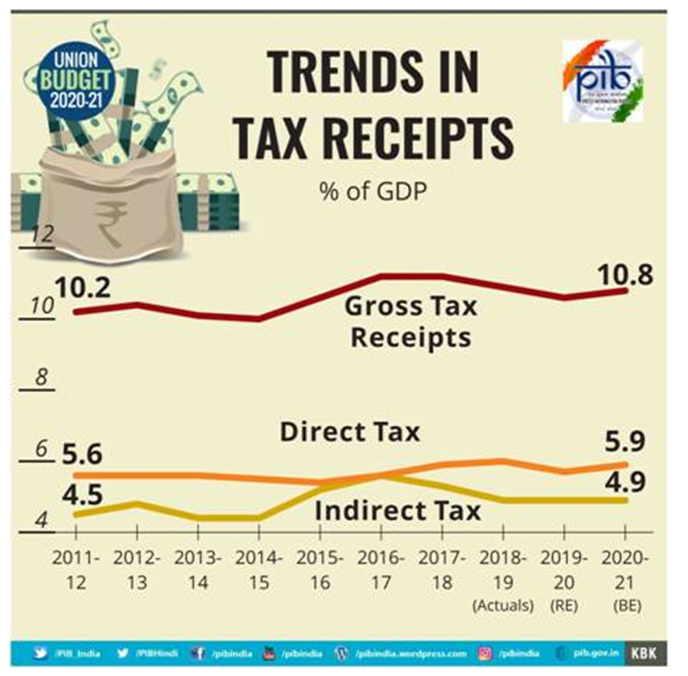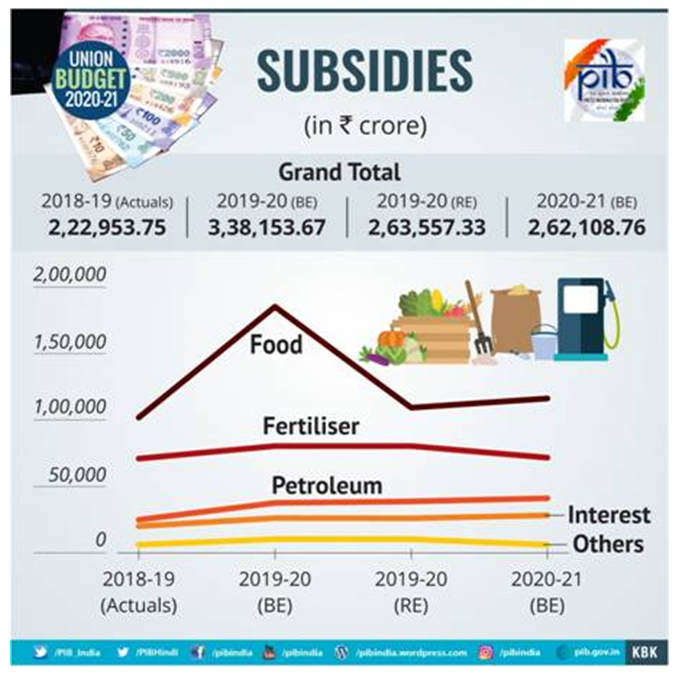

Introduction
- Grant additional of reform-linked additional borrowing limits to States was first announced in May, 2020 with the twin objective of pushing reforms and providing States the much-needed financial resources to fight the Covid-19 pandemic.
Gross state domestic product
- An important component of the ‘Aatmanirbhar Bharat Abhiyaan’ packages was an increase in the net borrowing limit of States for 2020-21 by two percent of GSDP.
- The step made available additional financial resources to the tune of Rs. 4,27,302 crore to the States, easing their highly stressed fiscal situation and giving them more headroom to meet their spending needs.
- Borrowing by States in India is guided by provisions of Article 293 of the Constitution. States are permitted to borrow within the territory of India against the security of the Consolidated Fund of the State, subject to the limit fixed by the Legislature of the State.
- However, according to Article 293(3), if a State is yet to repay any central loan extended to the State by the Government of India or by its predecessor Government, it has to obtain consent of the Government of India before raising any such loan.
- Based on the recommendations of the Finance Commission, the central government had fixed the net borrowing ceiling of States for the year 2020-21 at three per cent of GSDP.
- Although the socio-economic situation had justified the raising of additional debt of two percent by the States, hedging for future debt sustainability was equally important.
- Therefore, to alleviate the ill-effects of the current additional borrowings, half of the additional borrowing permissions were used as an instrument to nudge the States to push reforms in various citizen-centric areas.
One Nation One Ration Card
- Concerted efforts of DFPD have led to increase in seeding of Aadhaar numbers in beneficiary data of the National Food Security Act (NFSA) and other welfare schemes.
- This had enabled biometric authentication of beneficiaries through electronic point of sale (e-PoS) devices installed at Fair Price Shops (FPSs). It had also prepared the ground for nationwide portability of ration card and realising the dream of ‘One Nation One Ration Card’ (ONORC).
- ‘One Nation One Ration Card’ is a technology-driven reform which enables beneficiaries of NFSA and other welfare schemes to get their entitled monthly quota of food grains from any e-PoS-enabled FPS of their choice, anywhere in the country.
- The reform especially empowers the migratory population like labourers, daily wagers, urban poor like ragpicker, street dwellers, temporary workers in organised and unorganised sectors, domestic workers etc., who frequently change their dwelling place to be self-reliant in food security.
- The reform also enables the States in better targeting of beneficiaries, elimination of bogus/duplicate/ineligible card holders resulting in enhanced welfare and reduced leakage.
Ease of Doing Business
- Ease of doing business (EDB) serves as an important indicator for investment-friendly business climate in the country.
- Improvements in business environment in turn attract investment leading to faster future growth of the economy.
- Therefore, ease of doing business was identified as one of the areas for reforms.
- It aims at making the processes simpler and transparent, reduce the timelines for various regulatory approvals and eliminate physical interface between the department and the business. The reforms stipulated in this category are:
- Completion of first assessment of ‘District Level Business Reform Action Plan’.
- Elimination of the requirements of renewal of registration certificates, approvals, and licences obtained by businesses.
- Implementation of a computerised central random inspection system wherein allocation of inspectors for statutory inspections is done centrally, the same inspector is not assigned to the same unit in subsequent years, prior inspection notice is provided to the business owner, and inspection report is uploaded on the website within 48 hours of inspection.
Urban Local Bodies
- A financially sound local body that is working effectively enhances the quality of life of the citizens.
- Reforms in the Urban Local Bodies (ULBs) are aimed at their financial strengthening to enable them to provide better public health and sanitation services, and create a good civic infrastructure.
Power Sector Reforms
- Power Sector reforms stipulated by the Ministry of Finance aim at reducing losses, and creating a transparent and hassle-free provision of power subsidy to farmers.
- They also aim at improving the health of power distribution companies by alleviating their liquidity stress in a sustainable manner.
Related Articles





